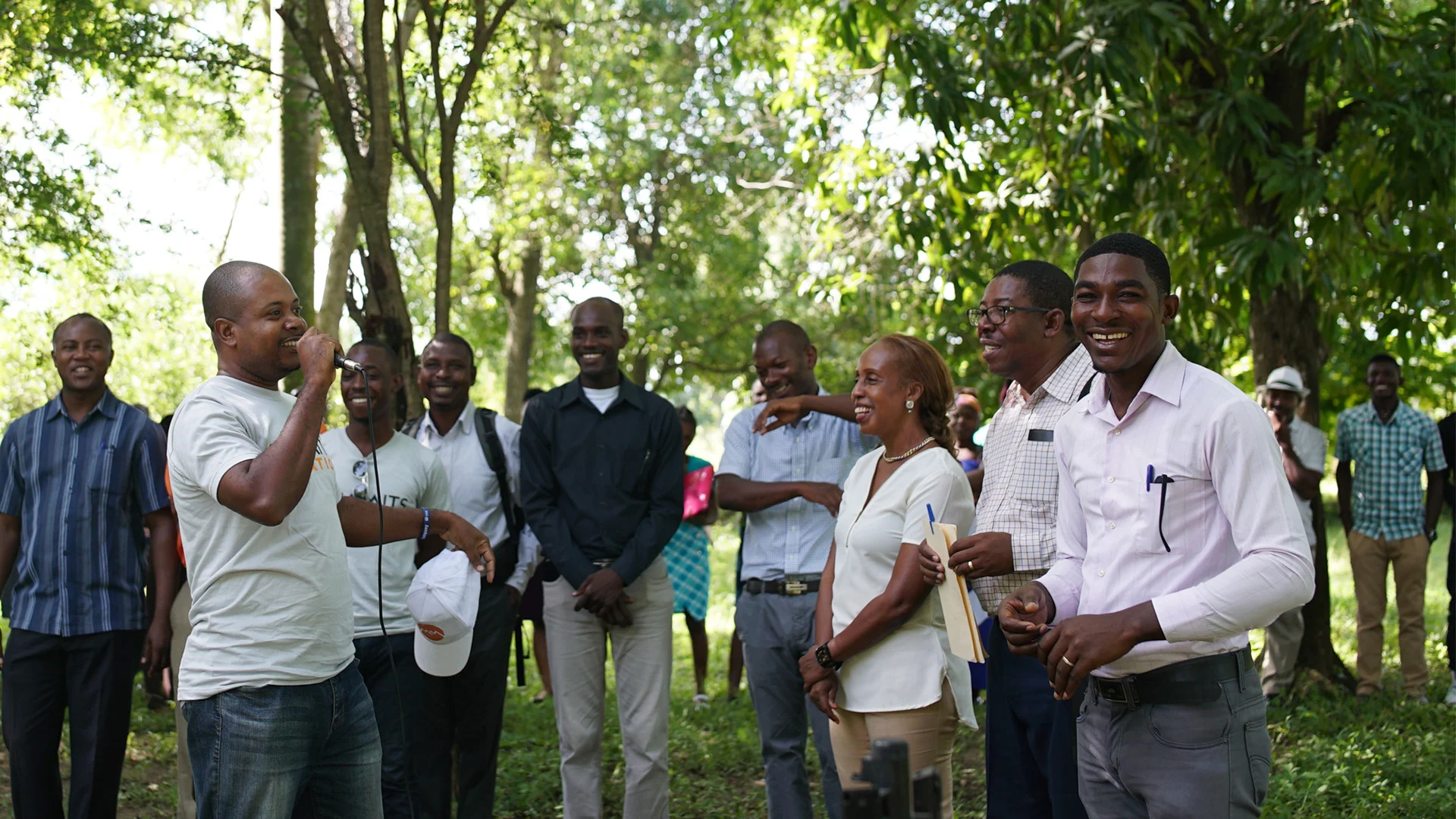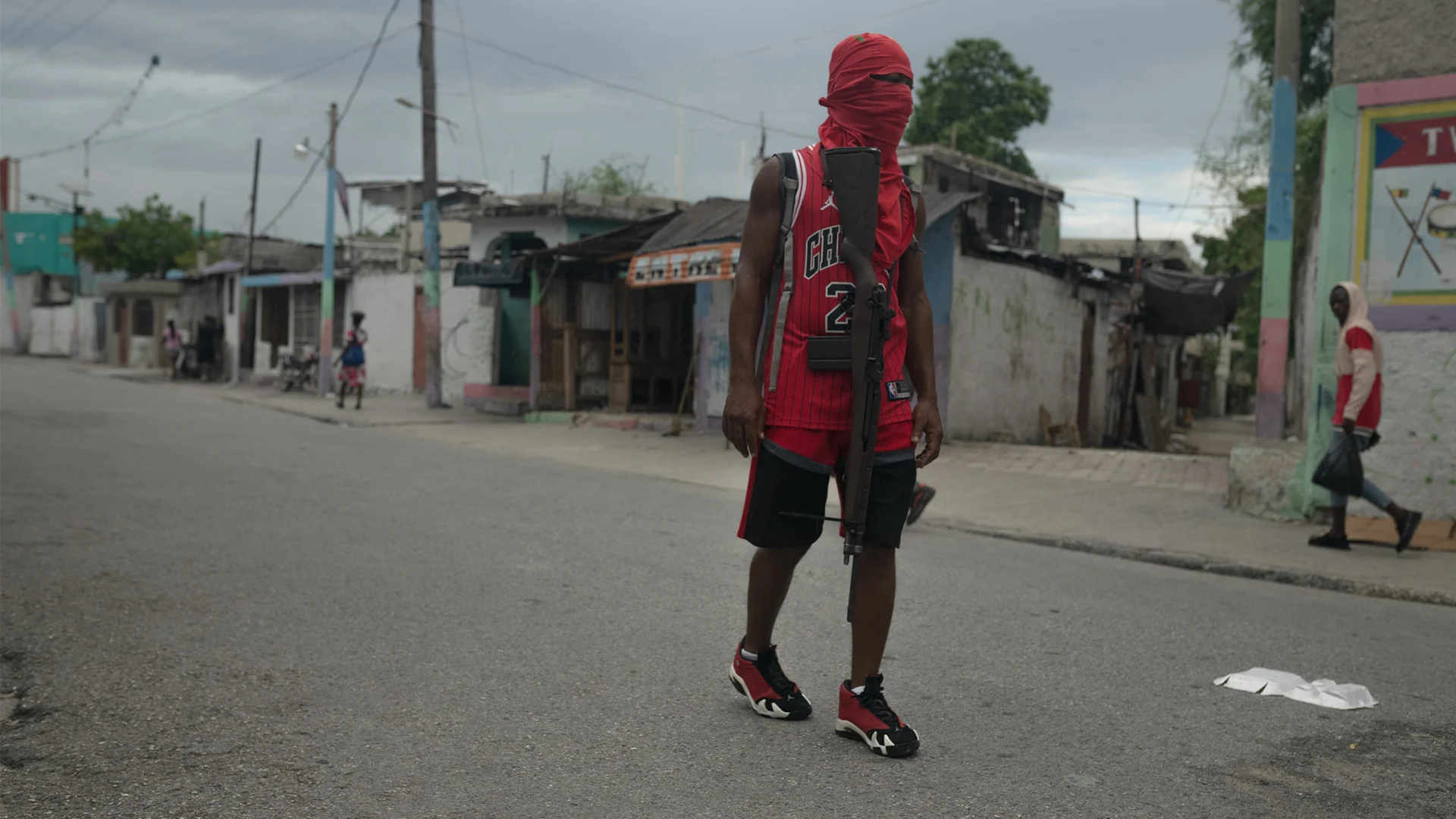
The United States is driving forward plans for an international mission to help rein in Haiti’s rampant gangs, but many Haitians are wary of foreign interventions and are already leading their own efforts to help their communities and rebuild their country.
Marie-Flore Lafontant Chipps, co-founder of Summits Education, a Haitian-led educational nonprofit, is one of them. Until recently, Lafontant Chipps travelled weekly from the capital, Port-au-Prince, to the Central Plateau region, where her NGO runs 40 schools in remote communities. She did it despite the threat of 400 Mawozo, the gang controlling the Mòn Kabrit mountain passage.
Every time Lafontant Chipps and her staff visited their schools – which serve more than 10,000 students – she would rent a bus and pay gang members $75 each way to cross.
Since 400 Mawozo opened fire on a public minibus on February 18, killing 10 people in one of a string of recent attacks, buses have been unable to pass, and Lafontant Chipps is now waiting impatiently for the route to reopen.
“There’s no way I can stay here and not go,” she says. “If we weren’t there, those schools would be closed and the teachers would not be paid. We’re doing the work that the government should have done. We go where they don’t.”
A driver for Summits Education was kidnapped a week before the minibus attack by another gang in Port-au-Prince, part of a surge of kidnappings and rapes that has left millions of Haitians facing constant distress as they go about their daily lives. He was released unharmed nine days later. Others aren’t so lucky.
Since the July 2021 assassination of president Jovenel Moïse, Haiti has fallen into a spiral of violence and lawlessness, with more than 8,400 people killed last year alone. The Caribbean nation has no elected government officials and its police force is overwhelmed. An estimated 200 criminal groups are contesting various parts of the country, with half of those said to be controlling some 80 per cent of Port-au-Prince.
The proliferation of gangs has been linked to the absence of economic opportunities for Haiti’s youth – more than half of its population of 11.5 million is under the age of 24.
Although Haiti became the world’s first Black republic in 1804, it was forced to pay billions to France in order to secure its freedom. That crippling debt – combined with decades of dictatorships, natural disasters, political and environmental mismanagement, a long US military occupation and a debilitating US trade embargo – has prevented Haiti from making economic headway.
This year, the situation has been compounded by violent protests calling for the resignation of Acting Prime Minister Ariel Henry. These have been supported by Guy Philippe, a former police chief, senator, and paramilitary leader who played a key role in the 2004 rebellion that ousted former president Jean-Bertrand Aristide.
Philippe was released in September from prison in the United States, where he was serving a nine-year sentence for taking bribes from drug traffickers. He returned to Haiti in November.
Five members of the National Agency for Protected Areas (BSAP), an armed environmental protection unit with close links to Philippe, were killed earlier this month in clashes with police as protests paralysed the country, making it even harder for humanitarian organisations to reach those in need.
Last week, US Secretary of State Antony Blinken pushed again for the rapid deployment of a UN-authorised Multinational Security Support mission, pledging $200 million to help with “planning, with intelligence, with airlift capacity, communications, and medical equipment and services”.
Kenya has offered to lead the mission. But Haitian and Kenyan authorities are still working on an agreement to bypass a ruling last month from the Kenyan High Court blocking the deployment of 1,000 Kenyan police officers. Several other countries have pledged money or personnel: Benin has reportedly offered 2,000 troops.
Haitians have mixed feelings about the mission. While some see no other way to go forward, others remember controversial US and UN interventions in the past and would prefer a Haitian-led solution that addresses the root causes of the country’s problems.
“I have never seen any change [with a foreign intervention],” Lafontant Chipps says. “There should be a good plan with the government and the international community this time. You have all these ministers going to work and doing nothing but waiting to get paid. Let’s restructure and have a vision and defend the needs of Haitians.”
Haiti’s escalating violence has also driven mass migration towards the United States. US authorities encountered 1.4 times as many Haitians along the US-Mexico border in 2023 than in 2022. Among those who stay, more than 314,000 people have been displaced by gang violence, 170,000 of them children. Around 44 per cent of the population suffers from acute hunger.
For those trying to continue doing crucial work for their communities, working around worsening gang violence is more challenging than ever.
Dr Christophe Millien, the Haitian chief medical officer of the Partners In Health (PIH) University Hospital of Mirebalais in central Haiti, was working early on September 26, 2023 when a gang burst into the health centre and opened fire.
No one was killed, but more than half the patients and many staff members fled, while shards of glass ended up at the feet of patients in intensive care and next to premature babies in one of the country’s few specialist neonatal units.
The 350-bed facility, which is still only operating at around 80 per cent capacity, shrunk to just 30 beds for the month following the attack and had to rely on air ambulances to transport staff and emergency patients because using the gang-controlled roads became too dangerous.
“We receive patients from all over the country risking their lives to go to the hospital to find care. We have a moral obligation to continue to support them,” said Millien, who stayed to help while his family left to live in Canada.
- The New Humanitarian report











